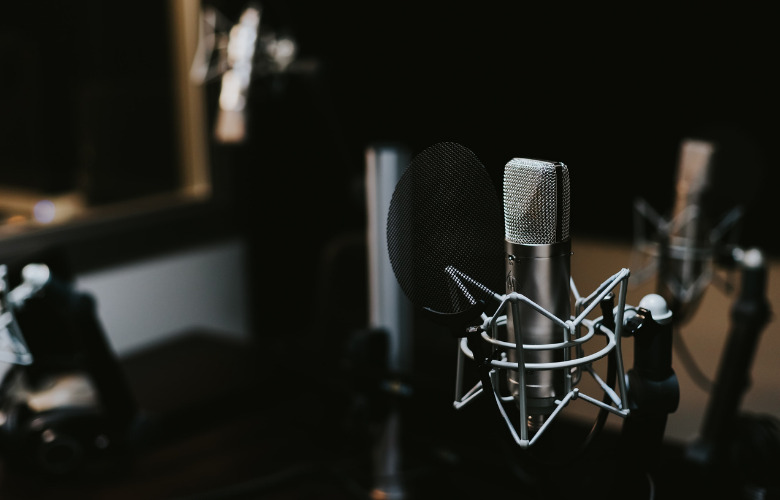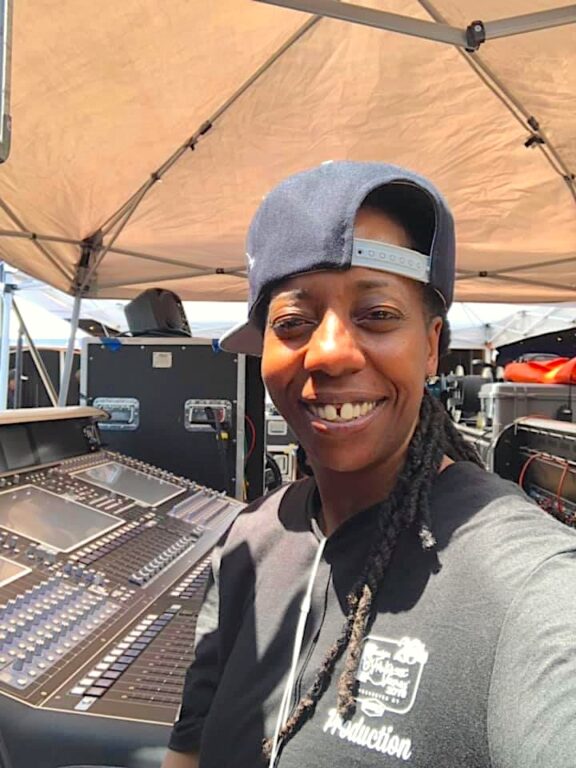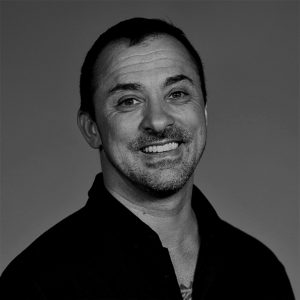
Daychia Sledge is a successful audio engineer. She has experience as a recording engineer in the studio, as a live sound engineer, and as a sound engineer for television. As part of an interview series with members of Roadies Of Color United (R. O. C. U.), this story in three parts focuses on Daychia. She tells us about her life and how amazing circumstances, great timing, hard work, grit, focus, and determination aided her in making her dreams come true. This is Part 1 of 3.
For the past twenty years I’ve been in sound engineering.
My dad was a respiratory therapist. Mom was admin manager for an attorney. Both wanted me to get a “career” job. They did not consider the music business-related things I did to be a “real” job.
In 1995, I graduated from high school. Now it was time for college.
I had been offered basketball scholarships at a number of different schools. However, I developed knee problems. My knees would keep popping out. So, I lost my scholarships because of the knee problem.
This meant I had to go to community college. I enrolled at York Community College in Queens.
It also meant I had to keep at least one of my major passions alive. My first passion was actually basketball. Music was my second.
I grew up in a religious family and the rules about going out were strict. I couldn’t venture too far from home. Luckily, I found a home recording studio very close to my block.
My first job was at a laundromat in Queens, New York, also close to the house where I grew up. I saved the money I earned so I could go to this recording studio which was owned by a guy named Dave.
Basically, I gave him all the money I earned at my laundromat. At the time, you could get home recording studios for 15-20 bucks an hour. That was a lot for me.
Fortunately, I still lived at home and my mom didn’t require me to pay rent. I didn’t have any bills to pay either, except my phone bill. Mom basically let me use all my money.
I used to hum to the sound engineer what I wanted stuff to sound like. And he just listened, then made all the equipment do the job.
It bothered me that I didn’t know how all this equipment worked. I asked Dave questions. But either I wouldn’t get any real answers, or what he said would be way over my head and I wouldn’t be able to fathom it.
Dave had a special offer. If you knew how to operate the equipment, he would charge only 10 bucks an hour. That’s why I kept asking questions. I had to save too much. But he wanted my money. He didn’t really want me to know how it all worked.
At the same time, I was trying to learn how to run a business.
I would ask, “How much is it if I need a studio? And what do I need for the studio?”
I still didn’t understand the list they would give me. Why would I need all that equipment? And how would I connect it?
I asked, “Can you install it for me?”
They said “Yes, but it will cost extra.”
All-in-all, it turned out I was going to need 15,000 USD. So that wasn’t going to work out either.
I started realizing this was a really expensive business I had chosen to get into. I needed to figure out how to get past this obstacle. And the only thing that stopped me was knowledge. Or rather the lack thereof.
That 1st year of college, I had already spent all of my money at Dave’s recording studio. I couldn’t play basketball anymore. The coaches were scared my knee would keep popping out. I was discouraged with both of my passions.
One day, at York Community College, they came around and said, “We have these additional selective courses you can take.” One was called Computer Music.
But I was frustrated after only a few weeks. It was just some keyboards and computers in a classroom. We would only learn how to sequence songs in midi. There was no recording studio equipment. None of the stuff I had seen in Dave’s house.
I already understood how to sequence songs. This class wasn’t going to get me where I wanted to get. And, at this point, I was really exasperated.
I was now nineteen. Going on twenty. The laundromat job wasn’t sufficient anymore. I searched and ended up getting another job, or rather jobs. One at Radio City Music Hall (RCMH). And the other job just across the street. At a music store called Sam Goody Music Store.
I worked there nights from 10pm to 8am. Then, I would go home and sleep a couple hours. Then, I would go to audio engineering school.
How I got to that school is an incredible story in and of itself.
I sat in the lunchroom of the community college, talking to some other people, when the guy who had gotten me into the Computer Music course walked by. That day, I had bought a professional sound magazine, Mix Magazine, which I had never bought before and was leafing through it. I showed the guy the magazine and said, “I thought this was what I was taking. Where do I find this class?”
He said, “No, that’s sound engineering. You have to go to a specialized school for that.”
I said, “Ok, take me out of the Computer Music course.” And that was it. I dropped out.
Then, low and behold, I keep going through the magazine after he leaves. And, in the back of this particular edition there was a special section (only that month!) for audio engineering schools in the United States.
There was a list of all the schools, listed by States. Mix Magazine had already vetted them out. Only the very best schools were listed.
I was so stunned by this discovery, I actually called my mom. And said, “This is what I want. I want to be an engineer. So I’ll know how to make my records.”
She was like, “That’s not a job.”
It was all the way out in Hoppock, Long Island. A good hour’s drive from where I lived. One way!
I was nineteen with my first car. So, I had the time and the energy.
From then on, I’d work at RCMH, come home, then drive to school. When I’d get off at school, I’d sleep in my car for a little while until I had to go back to work.
There was no other way. I had to pay the school 50 dollars a week in tuition. My parents made too much for me to qualify for financial aid. My dad was really upset when I began studying at the institute. “It’s not a school. It’s not a career.” But we got through it.
I learned audio engineering that year. I loved it. Enjoyed every day. Finally, I began to overstand everything.
I like to use this word… ‘overstand’… instead of ‘understand’. For me, understand means you have not yet overcome the obstacle. You are still under it. Yet, when I say, “I overstand,” it indicates that I have truly overcome or conquered the issue.
Ten months later, I graduated from the program. The good thing was, after you graduated you could still use the studio to work on your music. For the same 10 dollars an hour Dave was charging people who could operate the equipment themselves.
There were rappers in my neighbourhood. I would drive them to Long Island in my car and we’d work on their songs in my school’s studio.
Then, fast forward… I still worked at Sam Goody’s and at Radio City Music Hall. But, I had only chosen to work at both places because I figured this would bring me closer to the music industry.
Some days, we did in-store sessions with recording artists. But that never got me anywhere. They didn’t see me as an audio professional. They just saw me as a store clerk.
Growing up, my best friend’s name was Dana. One day, she said, “You don’t have a life. You just sleep in your car and go to work.”
So, she went and bought some tickets.
“Daychia, you’re not going to work tonight, or sleep. You’ll go to this concert with me at the Apollo theatre.”
She had first level seats. We were like fifteen rows back from the front row. It was a Teddy Riley and Blackstone concert. I love their music. But, the whole time, I am looking to the right of me. Looking at the booth for the sound and lighting engineers.
By the time it was intermission, Dana said, “Let me get this straight. I take you out to a concert and you are only looking to the right at that man. Is it the man you’re interested in or what he does?
“What he does,” I answered.
“Then, do me a favour,” she said, “Let me get my money’s worth by seeing you at least going over there and talking to the guy during this intermission.”
I walked over to the booth and one of the guys was there. At the time, I didn’t know who was who. The guy I spoke to was the lighting guy. His name was Admiral. Everyone in the industry knew him.
I said to him. “I’m going to audio engineering school. This is the first time I’ve ever seen this in action.”
He said, “You’ll want to talk to the audio guy. He’ll be back. Why don’t you come here on Saturday? We’ll be setting up for this big show called Show time at the Apollo. And we’ll actually tape it on the weekend coming up.”
“Come here on Saturday afternoon. Ask for Mike Jenkins. Tell him, I sent you. Tell him, you are in school, looking for an internship.”

David ‘5-1’ Norman, Tour Director / Tour Accountant (R. O. C. U.)
Martin Thomas, Lighting Designer – Black History Month, R. O. C. U.


Liam Klenk was born in Central Europe and has since lived on four continents. Liam has always been engaged in creative pursuits, ranging from photography and graphic design, to writing short stories and poetry, to working in theatre and shows. In 2016, Liam published his first book and memoir, 'Paralian'.
Read Full Profile© 2021 TheatreArtLife. All rights reserved.

Thank you so much for reading, but you have now reached your free article limit for this month.
Our contributors are currently writing more articles for you to enjoy.
To keep reading, all you have to do is become a subscriber and then you can read unlimited articles anytime.
Your investment will help us continue to ignite connections across the globe in live entertainment and build this community for industry professionals.